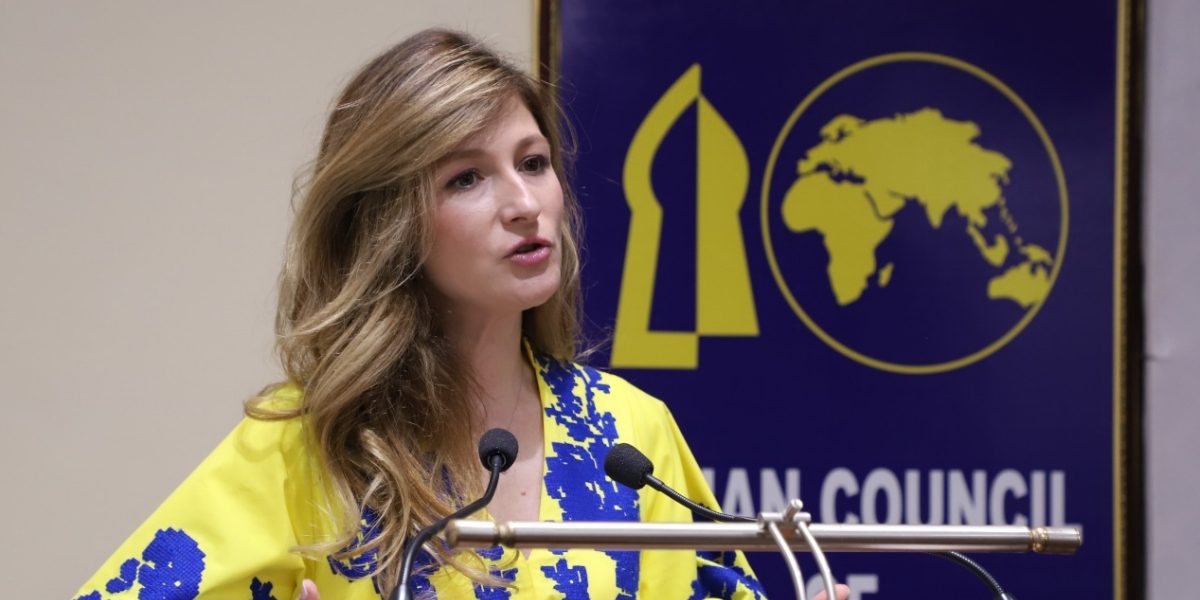New Delhi: Ukraine expects India to invite Ukrainian President Volodymyr Zelenskyy to speak at the G20 summit and also allow the participation of Ukrainian officials at other related G20 meetings, Ukrainian first deputy foreign minister Emine Dzhaparova said on Tuesday.
At an interaction organised by the Indian Council of World Affairs (ICWA), Dzhaparova said, “Our expectations are quite clear.” She said that the message to her Indian interlocutors was, “Let us consider the participation of Ukraine officials at G20.”
On a four-day visit to India, Dzhaparova is the first Ukrainian official to visit India since the start of the Ukraine war. She had held formal delegation-level talks with Ministry of External Affairs (MEA) secretary Sanjay Verma on Monday, followed by a call on minister of state for external affairs Meenakshi Lekhi on Tuesday.
At her meeting with Lekhi, Dzhaparova handed over a letter for Indian Prime Minister Narendra Modi from President Zelenskyy.
A former journalist, 39-year-old Dzhaparova said that “discussions about the economy in the world is not possible without discussing repercussions of the Ukraine war”.
At the G20 summit in September, she said that “my president will also be happy to speak” about the impact of the Russian invasion.
She added that India must “take leadership” in involving Ukraine in the “agenda” of G20 summits and meetings.
Dzhaparova also hoped that Indian officials, especially National Security Advisor (NSA) Ajit Doval, would visit Kyiv soon. She noted that NSA Doval had gone to Russia several times, but never visited Ukraine. During his last visit to Moscow, Doval also met Russian President Vladimir Putin.
The visiting minister proposed that Doval could visit Kyiv to establish the “special security mechanism”, as Ukraine considered it the “right time to do so”.
Asserting that her visit to India was to “restart” relations, Dzhaparova said, “Being with Russia, we are again very sincerely saying so, is actually being on the wrong side of history. Supporting Russia means that it is to be in the evil visionary picture of the world”.
Calling for a “balanced” approach from India, she said, “I think the suggestion that I brought here is to have a better and deeper relationship with India. And it needs reciprocity. We knocked on the door but it is also up to the owner of the house to open up the door.”
A long-term partner, Russia has been India’s top weapons supplier. India has also become among the main buyers of Russian oil since the start of the war. Officially, India has refused to take a position by abstaining from voting on resolutions in the United Nations against Russia. While New Delhi has criticised violence against civilians, India has never named Russia as a perpetrator in any public statement.
Last December, Ukrainian foreign minister Dmytro Kuleba had termed India’s purchase of Russian oil as “morally inappropriate”. However, Dzhaparova stayed clear of such criticism during her visit.
On a question about Ukraine’s defence relationship with Pakistan, she said that there had been military contracts, but that those were in the past. Ukraine’s ties with Pakistan were not targeted against India, she clarified.
Incidentally, among the gifts given by Lekhi was a book chronicling the kings of Kashmir, “Kalhana Rajatarangini”
During her speech, Dzhaparova spoke at length about the origin of the current war, saying it has its roots in the Russian annexation of Crimea. Taking a stance which leaned towards Moscow, India stated in 2014 that Russia had “legitimate interests” in Crimea.
Stating that she was aware of the “narrative” in India that the war was between Russia and the West, Dzhaparova said, “We don’t accept this narrative.”
